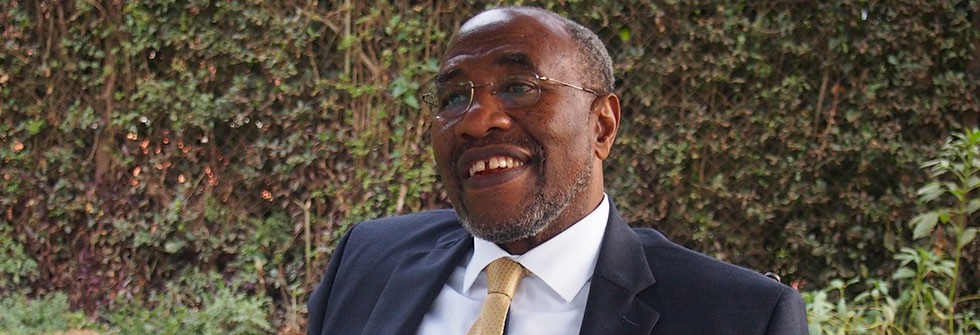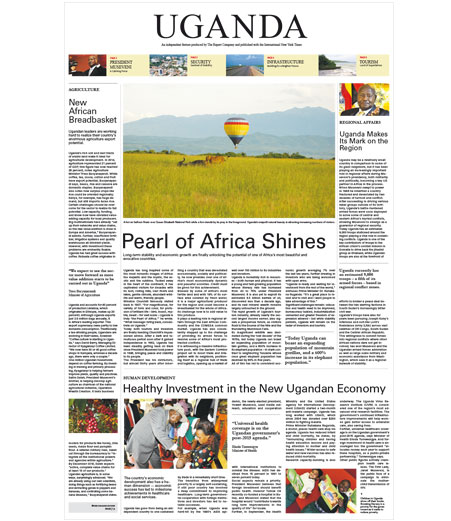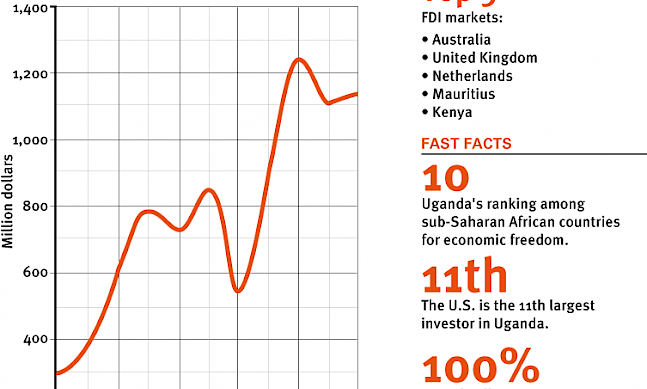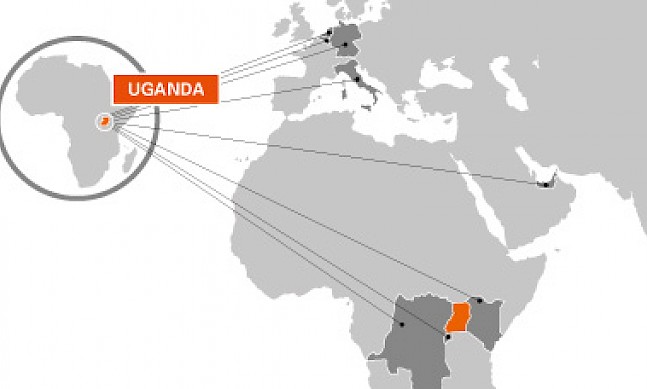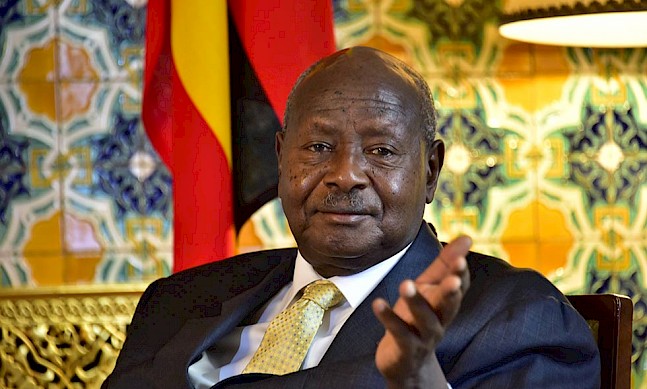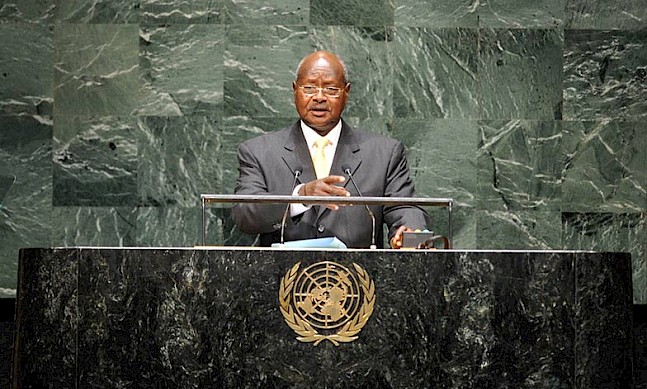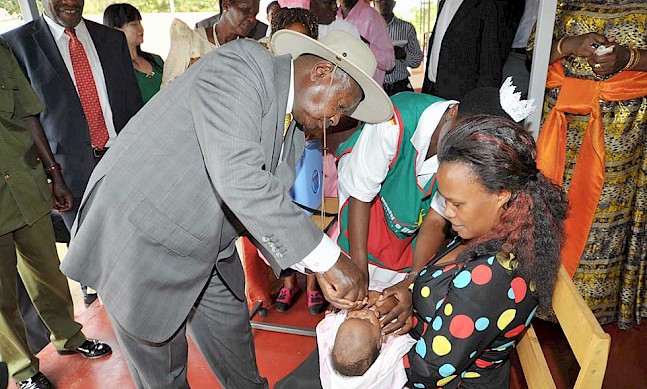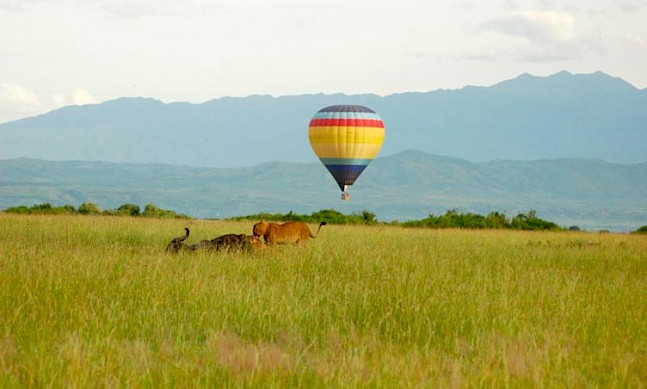Dr. Ruhakana Rugunda was appointed prime minister in September 2014 following a long political career which has seen him hold various cabinet positions from health minister to minister of foreign affairs. A physician by profession, he places strong emphasis on improvements in health as a contributory factor to Uganda’s development, and is keen to ensure that every Ugandan benefits from the country’s future growth.
The Report Company: How would you appraise Uganda’s progress so far toward its development goals?
Ruhakana Rugunda: Uganda is moving forward well. It’s making significant progress on a number of fronts. The focus is on developing infrastructure, especially the roads and railways, in order to ensure that the country is open and that its economic sectors can thrive. Trade, agriculture, and mining all depend on meaningful and broad and reliable infrastructure. This will promote, of course, intra-country trade, intra-regional trade and international trade.
TRC: Uganda has recently signed various infrastructure development agreements with China. What do projects like this mean for the country?
RR: This is really tangible and eloquent testimony of the commitment by the country to infrastructure. Of course, infrastructure does not just mean railways and roads but also power and the agreements signed by the president in China confirm this prioritization.
TRC: Do the recent agreements with China indicate a shift in focus away from your traditional partners in the West?
RR: The rest of the world is not forgotten because of our relationship with China. Our policy is to have good and mutually productive relations with all countries of the world. Our roots have always been with Western countries. It’s also good that our roots are extending to China and other new entrants in the economic transformation of our country.
TRC: How important is ICT to the future development of the country?
RR: ICT is a critical component of infrastructure. We have laid a backbone to ensure that the whole country is properly connected. ICT can not only enable sectors to operate but ICT in itself is a sector, especially in terms of business process outsourcing, development of ICT applications, making of software and other areas. We see ICT as becoming a major player in the transformation of Uganda’s economy and enabling the other sectors to move very quickly.
TRC: What is being done to address the widening trade deficit, and is your government waiting for oil and gas to flow to reverse it?
RR: The economy of Uganda has been moving on, expanding and growing without taking into account oil and gas. We are waiting for it to be produced and it will play its rightful role. Nevertheless the focus now is to expand the critical economic areas.
Agriculture has been the mainstay and we would like to see it expanded to become a contributor to wealth creation. Agricultural production is already expanding because the government is playing an important role in making agricultural inputs available to the people.
In fact, the point is value addition. We have been receiving little money from our exports because we are exporting raw materials. We must add value so that what we export is more valuable and hence the returns from exports can increase and therefore balance out the current deficit. So the expansion of agriculture, value addition, increasing industrialization and increasing ICT activities will help in closing this gap.
We have discovered that Uganda is heavily endowed with minerals as well as oil and gas and we are saying, let these minerals be both mined and processed and exported so we get a high value from our natural endowment in terms of minerals.
TRC: To what extent is education in Uganda adapted to the needs of the market?
RR: We have rapidly expanded access to education from universal primary education to universal secondary education. We have now expanded access to university education and there has been a rapid expansion of vocational education. But there is now a focus on ensuring that those we produce in our educational institutions actually gain the skills to fill the gaps in agriculture, industry and ICT.
We are working on education for transformation, education for development, education for skilling and re-skilling our people in order to meet the manpower requirements of a rapidly expanding economy. The targeting has already started. The focus is on universities producing the graduates to meet the requirements of the market.
Our young people are being prepared to meet now the new requirements of the oil and gas industry and also the expanding tourist sector.
TRC: How important is local content development?
RR: We started working on this many years ago when we came to power. One of the first things we did in the early years after taking power in the late 1980s was to send out scientists, engineers, geologists to other countries to study oil and gas because we knew we had this potential. It is these Ugandans who then worked closely with other experts to know that we had definite amounts of oil and gas and hence opened the country for exploration companies to come.
TRC: How do you see the health situation in Uganda?
RR: Health is very close to my heart. Health is key. Most of the problems that we have are preventable conditions and the government has done a lot in that respect. By simply immunizing children and having health education lessons and paying attention to mother and child health issues we have been able to reduce infant and child mortality.
We want to do more in the prevention of disease and the promotion of health. By supplying safe water alone you are eliminating many terrible diseases, but let me say that the phenomenon of immunization has had such an indelible impact on the lives of our people, especially the children. We have about 11 or so vaccines that the young people get. We are now introducing vaccines to prevent pneumonia and we will also be soon introducing the rotavirus vaccine to prevent diarrhea. As a result we think that morbidity and mortality among the children will come down rapidly.
We are also emphasizing the reduction of maternal morbidity and mortality. Some women are not obtaining the right antenatal care because of problems of accessibility. With the improvement of infrastructure, more women will be saved because they will be attending antenatal care and if they have complications, it will be easier to refer them to more specialized medical attention.
Our policy also is that many of the health problems can be handled by the people themselves, not by doctors and nurses. Avoiding AIDS is an example. You have the power to avoid it yourself. It’s literally a personal choice. We are working to lower the prevalence of AIDS and this depends on the cooperation of the population. We have had fantastic results and our First Lady is the champion of the campaign for the prevention and elimination of mother-child transmission of HIV.
TRC: Which areas would you highlight for investors?
RR: The priority area remains infrastructure. We think that that is the key. We are inviting American and global investors to come and invest in infrastructure. The second priority is agriculture. Our agricultural potential is enormous. There are opportunities for investment in production but more importantly in value addition.
Tourism is another priority sector. We like to see our friends come and enjoy the unequalled beauty that Uganda has. Uganda is a secure country but it’s not enough for us for Uganda to be secure alone. We think that the region must be secure and it is in that context that Uganda with her neighbors and the African Union and other partners like the United States has worked together to ensure that the anarchy in Somalia will come to an end.
Uganda has played an important role in that respect and we are doing so because of our commitment to have peace and stability in the region in order to promote regional trade which will then benefit all of us.
TRC: What would you like people to know about Uganda?
RR: Uganda and indeed Africa is ready and is waiting for investment from the rest of the world. This invitation goes to all investors. We are happy that Americans, Europeans and Chinese and Indians are now coming. We would like them to come in bigger numbers in order to help rural economies for our benefit and the benefit of investors. It’s a great place to invest and I want people to take advantage of this. It’s also a great place to visit and I want people to take advantage of this.


